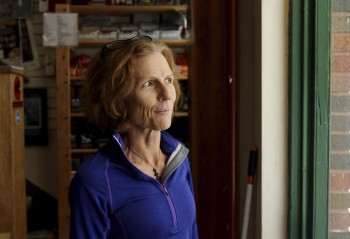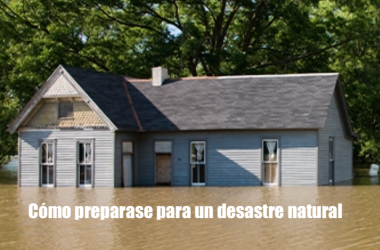
Maura Kistler, owner of Water Stone Outdoors, watched out the window as many businesses in town were closing due to a recent storm. “We feel we have a lot of stuff that people may need due to the severe weather,” she said at her shop in downtown. “We have also been open 21 years, 362 days a year and we are proud of that; and we have made a point over the years to stay open no matter what.”
FAYETTEVILLE, W.Va. — Business owners and local officials agree there are good things going on in Fayetteville and the immediate area. The past few years alone have seen the rise of new restaurants, retail shops, a strong farmers’ market, resident artist and live music in Fayetteville. Area outdoor adventure resorts and outfitters are continuing to diversify and offer new experiences. Around those resorts, high-end housing developments and retail opportunities are growing.
But this burgeoning scene has been a long time in the making.
Those who visited the New River Gorge in the 1980s and 1990s found Fayetteville a quaint and historical but a quiet and depressed town. A handful decided to invest by opening businesses or buying homes. They remain in the community, and their outfitting shops and restaurants are still cornerstones of the town.
At that time there were more than 20 small whitewater rafting companies, but Fayetteville had few retail opportunities.
“There was a pancake house off Route 19 and Little General had pizza, but there was nothing going on downtown. Storefronts were empty. There wasn’t even a place to get a cup of coffee in town,” she recalled.
Like many who have moved to the New River Gorge region, she visited, fell in love with the scenery and saw the area’s potential for recreation.
“I hadn’t been here three months before I knew this is my place. I never had that feeling anywhere. We knew we wanted to stay, but we didn’t know how we could stay,” she said.
Kistler was a trained school teacher and guided rafts in the summer, so her husband led the charge behind opening the town’s first general outfitter, Water Stone Outdoors.
“It seemed to make sense. We knew this was a world class climbing area and we needed a specialty outdoor business. We had no retail experience, but we were trying to build our community — to build the kind of community in which we wanted to live,” she said.
Building the business was very slow, and in some ways the town is just now becoming a vibrant community, which is reflected in her store’s bottom line, she said.
Five years ago Water Stone Outdoors had the best year they’ve ever had, and they continue to meet milestones. They had the best month ever last year and this year was their strongest opening quarter.
“We believe we have laid a lot of groundwork and are poised to start getting somewhere,” she said. “We have to find a way to think about our economy post-coal. What we have right now — The Summit, saving the Whitlock Farm (now owned by the county farm board), a nondiscrimination resolution — those are measurable signs of progress in this town,” Kistler said.
And it is a town that has become more and more welcoming to outsiders and the idea of tourism. It seems strange that a large queer climbing convention drawing LGBT from all over North America would choose Fayetteville, a small town in West Virginia, as its base camp, but 2016 marked the ninth year for HomoClimbtastic.
***
Fayetteville hasn’t always been as welcoming to outsiders, and in some ways the influx of river rats might have been as much of a shock to locals as the quiet, sleepy town was to the young rafters.
Kim Shingledecker came to Fayetteville in 1995 having just graduated from the University of Cincinnati. She worked at Sedona Grill, the only restaurant in town at the time, and as a rafting guide.
“It was a culture shock. The only place to get coffee in town was The Pancake House, which is where Sheetz is now on U.S. 19,” she said.
She thought about opening Cathedral Cafe, a coffee house that remains a local favorite, although it now has a new owner.
“I got a Small Business Association loan for $25,000 and opened Cathedral Cafe in 1997 and struggled. I was naive. At that time it didn’t matter how long you’d lived in Fayetteville. If you weren’t born there, you weren’t a local,” she explained. “My business made it because of the tourists and the money I made in the summer time. The rest of the year I was supported by the rafting guides who lived in town year-round.”
Today Shingledecker’s Pies and Pints is a cornerstone of the town’s exciting culinary scene.
***
“When I moved to Fayetteville in 1981, the economy was in a huge slump. It was apparent the town has seen better days. There was a drug store, grocery store and 16 rafting companies in their infancy,” described Colleen Laffy, who started out shooting pictures for Wild Rivers Photo Services and became the first female videographer in the New River Gorge region.
She still lives in Fayetteville and travels to work producing and filming for TV.
Today the town is “thriving,” she said. “It is 100 percent different from when I moved here. I attribute the growth and positive things in town to outsiders coming in, starting businesses, investing in outdoor stores and visiting to experience the outdoors.”
“It took me a while to stay year-round. I bought a house. It was affordable, and that is why I put down my roots here. It is an hour from the airport, and I’ve been able to fly out to shoot an episode here and there easily,” she added.
She pointed out that changes in Fayetteville have been slow to come over time, but it has always been a place where one person or one family could make a major change in the town’s culture and business landscape.
“In big cities, anything you do is going to be a tiny drop in the ocean. It doesn’t take a big drop to make a big change in rural communities like this,” she said.
Lewis Rhinehart is a relative newcomer and owner of Secret Sandwich Society and The Grove, an adjacent live music venue.
The town’s culture and atmosphere is continuing to evolve, he said. With established businesses in the downtown, the community has focused on developing a night life, a vibrant arts scene, bed and breakfasts and retail shops — those things that give tourists options and encourage them to extend their stay.
Rhinehart said the greatest challenge this movement has faced in recent years is working with the Fayetteville Town Council as they negotiate and respond to changes in the community, like enforcing parking regulations to manage an increase in traffic and drafting a noise ordinance to negotiate the growing live music scene.
Rhinehart often represents the voice of a new ad hoc business association at council meetings.
“The scene is being born. We are transforming into a more tourist-based economy. The state is in a dire economic condition, and we want to make sure laws and regulations are not making it more difficult to open or operate an existing business,” he said.
And some legislation pertaining to alcohol is bolstering local business.
In June 2015, Secret Sandwich Society was able to begin selling its local, craft beer to go in growlers. Rhinehart said this allows tourists to try local beer, like those from Bridge Brew Works, and take them home when they leave.
He is also part of a movement to encourage that the county place the Sunday brunch referendum on the ballot in two years. If it passes, restaurants in the county will be able to sell mixed drinks with Sunday brunch.
***
When asked how other communities can be as successful at Fayetteville, Kistler was quick to suggest that other towns should capitalize on what makes them unique.
“Richwood is 13 miles from Cranberry Glades, the largest area of bogs in West Virginia. Gauley Bridge is at the juncture of the New and Gauley rivers. To attract tourism, all communities need to capitalize on what they have and fill in the gap, provide those services tourists need to say in the area,” she said.
People used to come to Fayetteville to hike and bike but go to Charleston to eat after, she said.
“We had to find way to get them downtown and sell them a T-shirt or a cup of coffee,” she concluded. “West Virginians have to market their small communities. They have to define what it is that makes them different, articulate it, be proud of it and build a business around it.”
— Email: [email protected]; follow on Twitter @Sarah_E_Plummer






